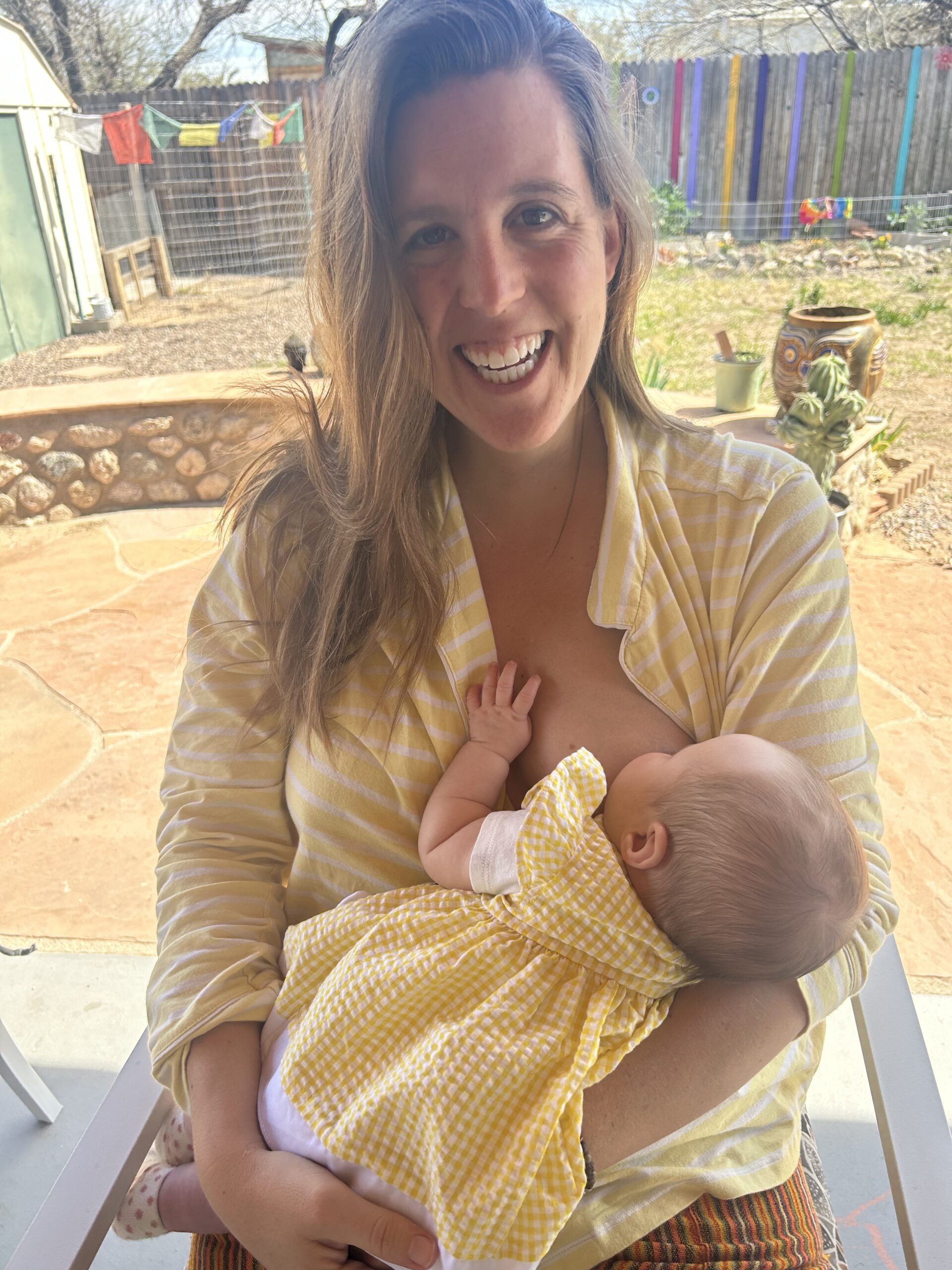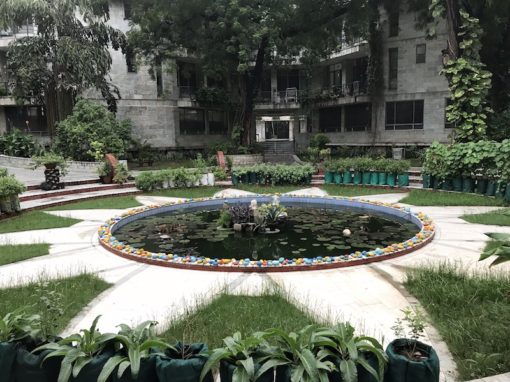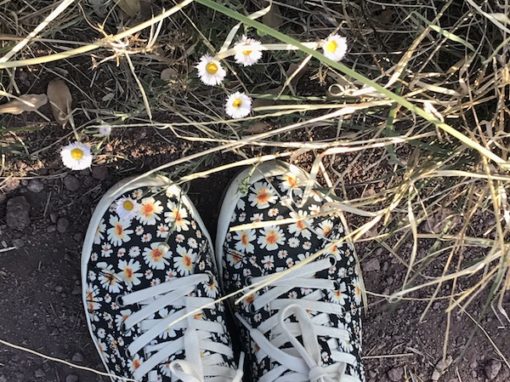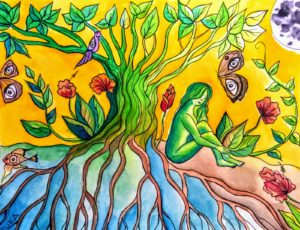The words “rooting” and “settling” used to scare me.
Rooting meant that I would be still, planted, permanent. It meant saying no to possibility. After moving homes at age 7, 11, 14, 18, 22, 25, 28, 29, and 30, I had found comfort in movement. It’s not that surprising, seeing how I was a child who always loved to be rocked to sleep, to ride her little wooden horsie, to run around and dance.
Settling, similarly, meant defeat. It meant sacrifice. It meant choosing to be in one place and trading that in for the option, the privilege, of a hundred what ifs. If I always had somewhere I was going, my eyes set on the future, I didn’t truly have to land into the present. I didn’t have to take the time to dig deep.
So, I chose to fly instead. In the abridged version, I began my professional work as a teacher, but found myself restless after 3 years of teaching 6th graders in Phoenix. I craved change, new, adventure. I wanted to see more of the world, desperately, and I could. So I did.
I backpacked Western Europe, focusing on Scandinavia where my ancestors are from. Then I moved to Cuenca, Ecuador and began teaching, writing, interviewing. I lived there for 2 years, then moved to Costa Rica to work on a sustainable ranch, it’s own deep dive into the difference between the shiny promise of sustainability and the imperfect practice of it. Next, I began working for study abroad organizations working with teens and young adults, traveling from Costa Rica to India, Brazil, South Africa, Fiji, and Nepal. In the summers, I walked the Sierra Nevada mountains, teaching creative writing and backpacking with teens for 40 days.
I returned to Tucson in January 2020 to “settle,” temporarily. Turns out reconnecting with family, friends, and place at that time in my life was exactly what I was meant to do. As COVID changed the professions I’d gravitated towards, I created Inner Compass Learning, my little organization that focuses on youth development. I tutored a pod of teens, and I met a man who felt deeply familiar to my soul. Missing community in work, I joined Ironwood Tree Experience as the Youth Development Manager, working to support teens in their deepening of love and care with their connection to this natural world, our mother. I found myself rooting without quite realizing it.
Nature, to whom we belong, teaches us that roots are life. The mesquite tree in the desert can develop a tap root up to 150 feet deep; this root reaches the hard to to get water during inevitable seasons of drought. The saguaro does not root deep, but settles wide. She can only stand so tall because of her extensive root system, branching across the earth only a few inches deep, but blanketing the ground.
It’s been 3 years since I rooted back in Tucson, since I settled. Would 25-year-old me believe that I would be married, have a little girl, co-own a home, and live 7 minutes away from my parents at this season in life? I shake my head, smiling. Did I choose to root and or did rooting choose me?
A friend recently told me there is a season for everything, and so we strive to live into the season in which we’re in. I’m in a season of stillness, reflection, and new growth. The more places I went, the more similarities I saw: a deep care for family, a search for love and peace within oneself, a big questioning of the whys, a quiet reckoning with the hows, a fight against power, a hope for joy.
I remember Abid Ji, a mentor in New Delhi, telling me during a taxi ride that I would never understand the ache of 40-year-old knees until I had 40-year-old knees. Experiences become lived in their own time. I’ve found, that while I am so grateful for all the places I’ve been, being still has been my most forceful teacher. In rooting, I become the branching roots suckling hard to reach water, communicating with my siblings through mycelial hugs. In settling, in rooting, in stillness, I talk with and hear myself, all my selves.
I talk with child me who built fairy homes in suburban Chicago trees, who rode wooden horses and danced and read word after word until dawn. I talk with middle school me who wanted to belong so tenderly that she didn’t know who she was, or what she believed. I talk with teenage me, a creature who learned to please, who didn’t quite know the power of no, who performed perfection without question, yet who yearned for what was real, for liberation from scripts of gendered expectation.
I talk with me of my young 20s, learning to guide young ones, finding voice in teaching but not knowing how to speak for myself; I watch her grapple with the inequities of this world, and try to make sense of her place in the systems that hold us captive. I talk with the wandering me, the one who wanted to see everywhere, everything, all at once. I talk to pregnant me, whispering how nourishing I’m becoming, and I talk with me now, the one who watches her daughter sleep. Her daughter. I shake my head. Rooting. Settling.
This season, I think about settling differently. I’ve come to see that a big part of me was scared to settle. Who would I be if I wasn’t always traveling, if I wasn’t always doing? Could I come to accept, to celebrate, to share the imperfect me who can only be encountered in stillness? In stillness, I look into my ancestry, I tend to relationships in my family, I stay in one place long enough to deepen and mess up and redeepen relationships. Settling isn’t just the place; it’s also my internal landscape.
Resmaa Menakem, in his guiding book ‘My Grandmother’s Hands,’ describes settling in the following way:
“Few skills are more essential than the ability to settle your body. If you can settle your body, you are more likely to be calm, alert, and fully present, no matter what is going on around you. A settle body enables you to harmonize wand connect with out bodies around you, while encouraging those bodies to settle as well…Settling is not the same thing as healing; it is an all-important foundation for healing. A settled body invites and accepts efforts to mend it; an unsettled one tends to resist those efforts.”
‘My Grandmother’s Hands’ pgs. 151-153
Rooting, similarly, has taken on a new meaning. Rooting is a type of searching in stillness. When babies “root,” they turn their little snouts to the chest, the arm, the armpit, trying to locate a nipple. Rooting is what piglets do, snort snort snorting their way across the field, searching for sustenance. My tap root digs down deep, searching for a liquid source. My baby searches across the meadow of my chest, following a knowledge, a hope, a smell toward that which will give her life. She rooted so hard the other night, she gave my breast a hickey. I suppose we have to root to receive that which keeps us alive.
I’ve missed writing these reflections. I suppose they’re more for me than anyone else– a place to process in words, a way I’ve always tried to understand life. As I’ve rooted more into Tucson, I’ve also explored somatic work with a deeper interest. What is the world beyond words? Where do feelings live inside me? What are the tremors, the tingles, in my body saying? After carrying a life within me, experiencing the contractions that bring forth the wail of welcoming, I see somatic work differently, and I feel words coming forward trying to capture it all.
I’ve also studied how to be a doula, a birth guide, and completed my Reiki training in speaking with an energy that is perpetually present. As I prepare for the next phase of transition, leaving my home from these 12 weeks with Alia and balancing time again as one who works beyond the home, one who care takes within the home, one who creates, having a space to write is my sanctuary. Having a space to share is the little seed of hope that loves putting its tendrils into the air. I’m working on my next poetry book, a somatic exploration of pregnancy, birth and postpartum. I’m still working with teens encouraging them to find love with themselves in this desert. I don’t know what the rest of this season holds, but it feels like lots of learning is going to keep on coming.




